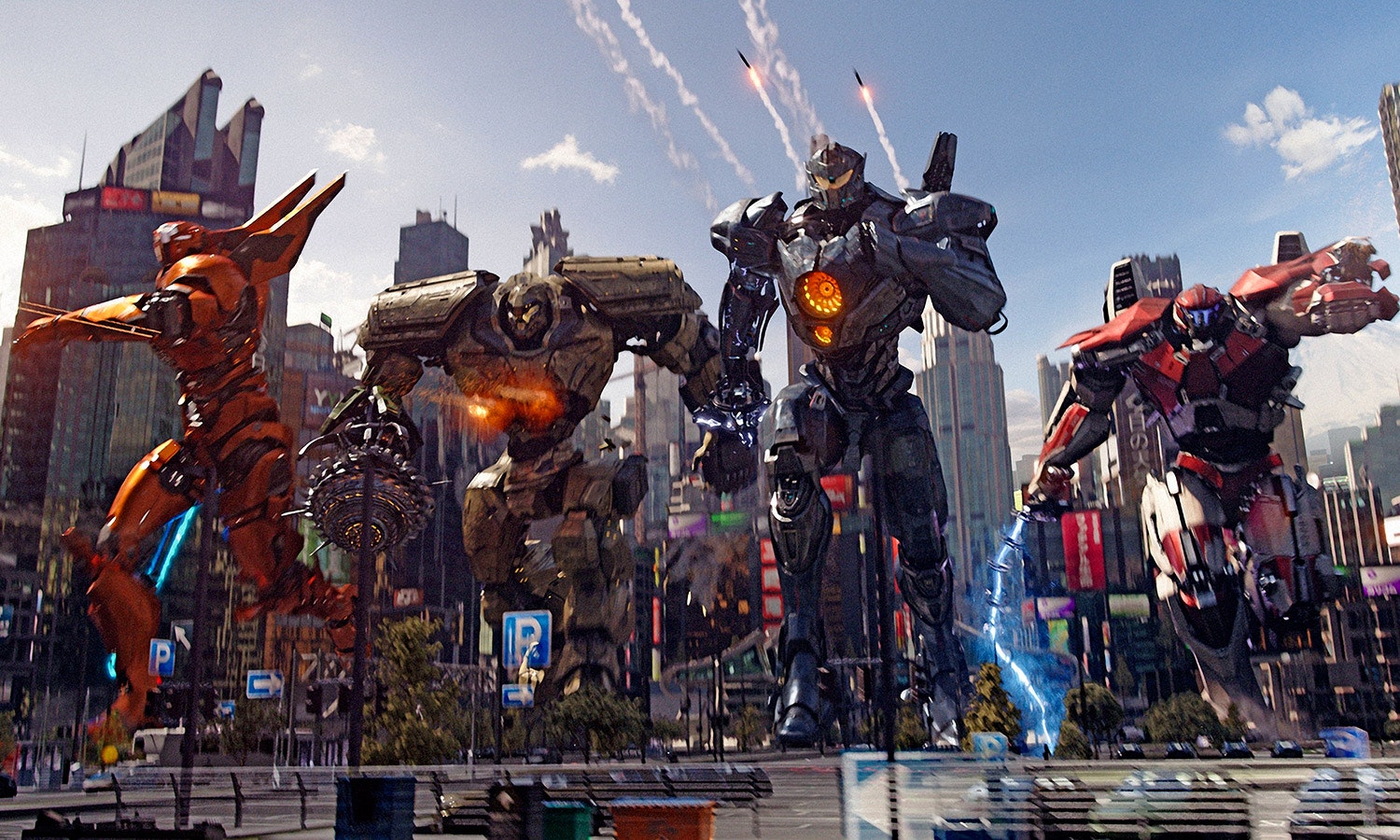
Following his turn in The Force Awakens as ex-Stormtrooper Finn, John Boyega was seemingly on the rise. For those who’d seen him years earlier in the sci-fi action flick Attack the Block, his projected status as an A-list genre star was a no-brainer, and there was one film in particular meant to signal his ascension to mainstream talent.
Pacific Rim Uprising, the sequel to Guillermo Del Toro’s 2013 monster film, was a critical bust. While Boyega is its best part, every other component of the misguided follow-up completely misunderstands what made the original such theatrical fun. Where once there were clear influences ranging from classic kaiju movies to Neon Genesis Evangelion, Uprising strips away any style or substance for your standard rock ‘em, sock ‘em standoff that owes more to Transformers than anything del Toro had his hands on.
Set 10 years after Pacific Rim, we’re introduced to Boyega’s Jake Pentecost, the son of the legendary Stacker Pentecost (Idris Elba), who sacrificed himself in the original to close the breach that allowed the kaiju to gain entry from another world. Once a promising pilot of Jaegars, the giant mechs built to stop these monsters, he’s since abandoned that life for the criminal underworld, surrounded by those who barter and trade in crumbling Jaeger technology. But after a run-in with the orphaned Amara (Cailee Spaeny), he’s forced to become an instructor for her and other Jaegar cadets.
Boyega’s character is ostensibly linked to two major players from Pacific Rim, but director Steven S. DeKnight failed to capture the stakes delivered by del Toro. With a different cinematographer, editor, and composer, and Ramin Djawadi’s main theme from Pacific Rim only appearing twice, Uprising’s atmosphere and intentions are in stark opposition to its source material. For a film meant to exist within the world of its predecessor, Uprising worked hard to distance itself from its origins.

Take Charlie Day’s Newt, whose morally gray monster enthusiast is contorted into a mustache-twirling villain. Worse yet is the fate of Rinko Kikuchi’s Mako, who paired with Charlie Hunnam’s Raleigh in the original. Hunnam doesn’t appear here, and Boyega certainly makes for a more engaging protagonist. His dynamic with Mako is great, and it’s much more natural than Boyega and Spaeny’s forced sibling energy. And then Mako is unceremoniously killed off. Not even in battle, but in a helicopter crash. That’s inexcusable for a franchise about robots fighting monsters.
Even if the rest of the film had been a livelier affair with better set pieces and new characters who left any semblance of an impact beyond Boyega, that absolute dismissal of Mako would leave a sour note. Pacific Rim worked in broad brush strokes, with larger-than-life characters and certain archetypes filled in to create colorful and distinct personalities. Its epic lack of subtlety is gleeful, but it still managed to find the humanity in its misfits who banded together to save the world. Uprising failed to recognize what made the original such a delight, and instead warped it into something boring and bland. Boyega’s character emerges triumphant, and yet you can’t help but feel a sense of defeat.







